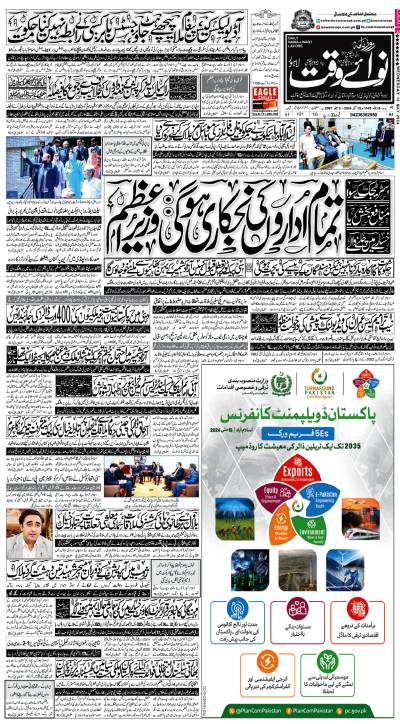Nobility of medical profession and excellence in medial skills were both personified in one person: Professor Dr Muhammad Naseem ullah (15 August 1943 – 12 January 2015), who was a Professor of Medicine, Medical Unit 1, Holy Family Hospital, Rawalpindi Medical College
Dr Naseem ullah left a deep impact on his students and junior professors. His life can be encapsulated in five principles.
First, a doctor (whether a post-graduate or consultant) should read an authentic book of Medicine daily. On ward rounds, he used to proclaim: “I am still a student of Medicine, why can’t you be so?” Further, “I read Medicine daily and each time I stumble upon a new point.” “Learning is en route to discovery, if you keep your eyes open and ear cleaned.” During ward rounds, he used to ask his subordinate professors: “When did the last time you open any book of Medicine?” Embarrassment in front of patients remained frightening for even consultants working under his supervision. Ward rounds were lengthy, spanning hours. He was sometimes blunt to ask subordinate professors to leave the ward if they were not prepared for taking questions and engaging themselves in discussions. “Do not come to the ward rounds unprepared.” He wanted his supervised doctors to be updated on the latest. For medical students, he encouraged the Rule of Five: Narrate five main causes, five main signs and symptoms, five major differential diagnosis, etc.
This quality is missing today in most professors, who are keen to shorten ward rounds and tolerant of knowledge deficit rampant in post-graduate trainees. Easy-study guides and published notes are in use. A reason is the falling quality of the English language in medical graduates, who cannot comprehend the language of an accredited book.
Second, develop the medical sense of diagnosis, instead of relying on the laboratory reports. Dr Naseem ullah used to say: “A doctor devoid of the power of observation is no doctor.” Moreover, “A doctor should be capable of making a provisional diagnosis, instead of waiting for the laboratory report.” “A doctor should be ahead of laboratory reports, which should only confirm the findings of the doctor.”
Compared to this preference, today’s doctors mostly seem incapable of having best medical judgement. They tend to advise a number of laboratory tests which overburden pockets of patients. Laboratory reports dictate doctors. Consequently, establishing laboratories has become a lucrative business. More than the doctors’ fee or the cost of medicine to treat a patient, unnecessary and overreliance on laboratories has made treatment costly in Pakistan.
Third, Medical Ethics were meant for practice and not for garnishing the books of Medicine. Dr Naseem ullah remained a lead proponent of ethics. He used to ask medical students and post-graduate trainees: “Do you look like a doctor? When did you last time see yourself in the mirror?” He emphasised that in their appearance, there should stark differences between a goon and a doctor, whether in or out of hospital. “Where is your white coat?” “A doctor without a white coat is not a doctor.” “Wearing a clean and neat white coat is the first ethic.” “Don’t swing the stethoscope as if you were to hang a patient.” “The stethoscope demands skillful conduct. Learn to use it dexterously.” “Earn dignity for your profession by using the language of respect for patients.”
Compared to this level of demand, visit a hospital now, especially the one run by the government, and get disappointed. Medical ethics struggle to find relevance. Junior doctors are disrespectful to seniors and even to patients. One can find today’s doctors (most post-graduate trainees and consultants alike) wrestle with sticking to medical ethics. Surprisingly, most doctors have liberated themselves from these constraints of white coat and even stethoscopes.
Fourth, respect patients. Dr Naseem ullah used to say: “You are here (as doctors) for patients. Why do you shirk your responsibility for serving them?” “Do not mistreat patients. It is not only because they are human beings but also because they are a source of your learning.” “Patients will teach you what books cannot.”
This virtue is still missing in today’s doctors, who are less careful of patients’ comfort and welfare. The practice of history taking in detail is now getting redundant.
Fifth, a doctor without the healing touch is not a doctor. “Don’t be an earning machine. Instead, be a doctor who could donate cure to patients.” Dr Naseem ullah exemplified this principle by limiting his private practice and by seeing poor patients without charging fee.
Unfortunately, insufficient bed-side clinical and diagnostic skills, deficient medical ethics, disrespect to patients and inadequate history taking abilities are major hurdles in the path of Pakistani doctors to pass the examination for the Membership of Royal College of Physicians, United Kingdom.
Sir, Professor Dr Muhammad Naseem ullah, rest in peace! You will be remembered. You will always be alive in the hearts of your students. We learnt a lot from you.
Thursday, May 16, 2024
A tribute to Prof. Dr. Naseem Ullah

ADB sells $3.5 billion 2-year global benchmark bond
May 16, 2024
Punjab Police fighting on multiple fronts: IGP Usman
May 16, 2024
Gilani feels proud to serve South Punjab people
May 16, 2024
PMD predicts chances of rain at few places
May 16, 2024
Heat Alert
May 15, 2024
Tax Reform
May 15, 2024
Crisis Averted
May 15, 2024
Time Is Now
May 14, 2024
Power Abuse
May 14, 2024
Success of Lunar Mission
May 15, 2024
Service disruption
May 15, 2024
Weather Crisis
May 15, 2024
Reforming the Wheat Purchase System
May 15, 2024
Political Instability
May 14, 2024
ePaper - Nawaiwaqt
Advertisement
Nawaiwaqt Group | Copyright © 2024





